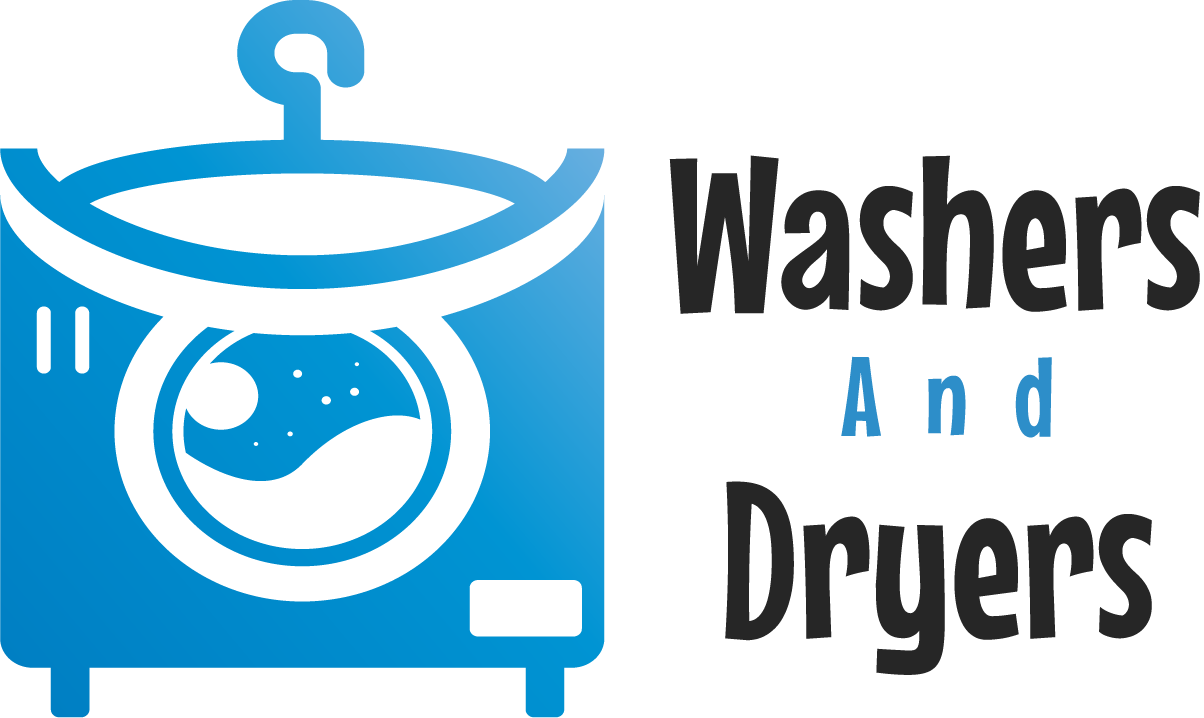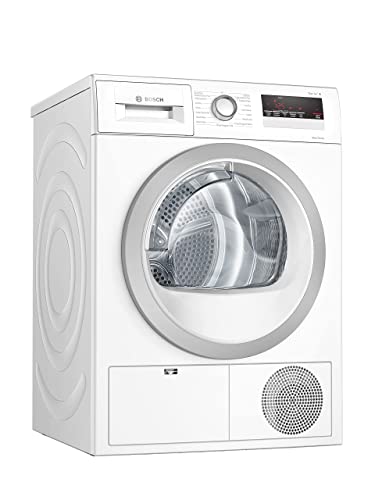Dryers Heat Pump It's Not As Hard As You Think
페이지 정보
작성자 Modesto 작성일24-02-28 12:30 조회55회 댓글0건본문
 Why Buy a Dryer With a Heat Pump?
Why Buy a Dryer With a Heat Pump?The heat pump dryer functions similar to standard electric or gas dryers. They heat air and then pump it back to the drum. The warm air isn't forced into the vents, where it could cause problems such as clogged lint filters and energy waste.
Since ventless heat pumps cool the air to eliminate moisture they can be positioned anyplace. Learn more about their other advantages.
Energy Efficiency
While traditional vented dryers use large amounts of energy to operate however, heat pump dryers consume only a fraction as much. They don't require heat as conventional dryers do. They rely instead on a closed loop refrigerant loop system similar to an air conditioner. The air that is pushed through the evaporator coils of the dryer heats it and absorbs moisture. This moisture drips into a tray that can be emptied manually or connected to a drain pipe. The cooled air then circulates through the coils, causing the process.
The result is that heat pump dryers use around two-thirds less electricity per load than a conventional dryer according to Energy Star. They don't require venting. This reduces the risk of lint accumulation in the vent and reduces the risk of fire. Ventless dryers can be used in any space with an electrical outlet. This makes them perfect for small apartments and spaces.
In addition, the energy efficiency of the heat pump dryer can translate into lower utility costs. That's especially important given the rising price of electricity. Heating pump dryers are typically more expensive upfront however they pay for themselves within two years due to their lower operating costs.
Electric heat pump dryers use less energy as well than condensing non-heat pump dryers. However, their cycle times are a bit longer than those of conventional dryers.
If you are serious about reducing your energy consumption, a heat-pump dryer is the best option. It's the most efficient way to wash your clothes and can be powered by electricity produced by solar or other renewable sources. If you're on the path towards an all-electric home, then a clothes dryer that is heated should be a part of it. It's because it is powered by the same renewable energy source that powers other appliances such as refrigerators and washers. It can help you reach your goal of having an all-electric home by 2050.
Convenience
Many dryers with heat pumps have sensors for moisture to prevent overdrying and save energy. Some dryers heat pumps also have anti-wrinkle technology and smart settings that can be operated by smartphones. Certain models that are certified by ENERGY STAR can recycle the water used to remove moisture from the air when drying, thereby saving you money.
Heat pump dryers also offer more flexibility than vented or ducted clothes dryers as they do not require venting. They can be used in a variety of different locations, including attics or basements. The only issue is that it takes longer to dry your laundry than regular electric models because they require less heat.
Heat pump dryers make use of the same air to dry clothes instead of using hot air as conventional electric or gas dryers. A compressor presses refrigerant in one set of coils to release heat, then it flows through an expansion valve into a different set of coils, laundry where it cools and absorbs moisture. This process continues until the load is dried completely. This is more efficient than traditional dryers, which use energy by continuously heating the air to dry laundry.
The use of heat pump dryers may initially be costly however they are an environmentally friendly alternative. They will pay for themselves over the long term by reducing your energy bills. Many manufacturers also offer incentives and rebates to offset the initial cost of the clothes dryer with a heat pump.
Some dryers with heat pumps require a special drain hose to dispose of the water they use to evaporate moisture from the air, which can add to the cost of the device. This isn't an enormous drawback but it could be a deciding factor for some buyers.
Heat pump dryers offer a number of advantages that are worth taking into consideration. They are gentle on fabric and help extend their lifespan and look nice in the process. They are also more efficient in energy use, reducing your energy bill up to 28% when compared with conventional dryers.
Durability
These dryers cut down on energy costs and prolong the life of clothes by reusing heat from air. They employ the same process to remove water from clothing as vented models, however, they don't release humid air outside. Instead they reuse warm air that has already cooled. They typically take longer to dry than traditional vented dryers due to the fact that they operate at lower temperatures.
Since they don't require a vent, these dryers can be installed in any room that has electricity and a water source. They are ideal for small homes, accessory living units (e.g. an apartment above the garage) and additions. Some models are small enough to fit in small spaces, and some can be stacked together with a washer for added flexibility. Ventless heat pump dryers that have a larger capacity, which can get an Energy STAR certification, are more efficient.
As with traditional vented dryers these dryers feature a heated drum that clothes tumble around in. As the clothes spin, the hot drum heats up and pulls out the moisture. This water is then trapped in an individual tank or drain hose, which has to be drained manually, or automatically. Some dryers require a water tank to be cleaned every few cycles. Others have a self draining tank that requires less maintenance.
The dryers that use heat pumps are more complex and require more maintenance than vented dryers. They also have higher repair costs. These machines are nonetheless worth the investment if you are looking to save money and reduce your utility bills.
The most important factor to consider when making a decision on whether to purchase a heat pump dryer is your laundry habits and budget. If you're a heavy laundry user who prefers short drying times then a traditional vented dryer is the best choice. On the other the other hand, if you're searching for savings over the long term and do not mind 2.5-hour drying times, a heat pump dryer is an excellent choice. They are energy Efficient Drying with Sharp 9kg Heatpump Dryer and can save you as much as $2,600 annually. They last twice as long as vented models.
Noise
The dryers that use heat pumps tend to be quieter than conventional dryers, however noise levels can vary among brands and models. Understanding the methods used to measure noise levels and comparisons between them can help customers choose the best model for their needs. If noise is a concern it might be best to plan to use your dryer at off-peak times when sleep and household activities patterns will be less disrupted. Additionally, locating the dryer in an area that minimizes vibration and isolating it from the floor using mats or rubber pads can further reduce unwanted noise.
Squeaking and grinding noises can be an indication of an overloaded dryer drum that is struggling to rotate in a proper manner. To prevent this, be sure to follow the manufacturer's guidelines regarding load capacity and avoid overfilling the dryer. It is recommended to balance larger items, such as blankets or comforters by using smaller ones will improve performance and reduce the sound of squeaking.
The sound of a heat pump dryer gurgling is normal. It's a sign that the dryer is functioning in the way it was intended to. If the sound becomes louder or continues to occur it could be a sign that the dryer's lint filter or vents are blocked and need to be cleaned.
 Cleaning the lint filters regularly and dryer vents is essential to ensure the efficiency of a heat pump dryer. works efficiently. This will help prevent noises during drying, and extend the longevity of the appliance.
Cleaning the lint filters regularly and dryer vents is essential to ensure the efficiency of a heat pump dryer. works efficiently. This will help prevent noises during drying, and extend the longevity of the appliance.Some heat pump dryers claim that they can run on conventional 120 volt and 15 amp electrical circuits. This is convenient for older homes with fewer outlets for power. This could be a deceitful marketing, as the majority of electric dryers require 220-volt circuits that have 30-amps in order to function effectively. A heat pump dryer running on a standard circuit can increase the risk of electric shock and fire. Therefore, it is recommended to use an electrician who what is tumble dryer heat pump certified to install the heat pump dryer within an existing home.
댓글목록
등록된 댓글이 없습니다.
 즐겨찾기 추가하기
즐겨찾기 추가하기





 관유정 커뮤니티
관유정 커뮤니티